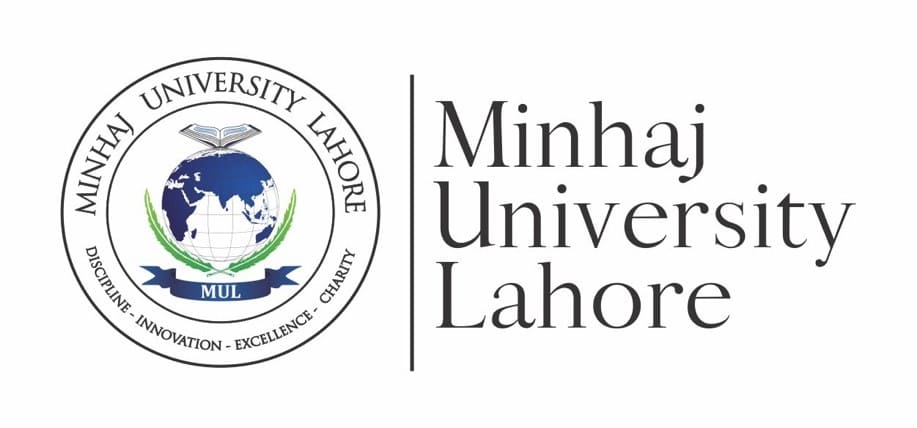Implementation of Whistle-blowing System to Prevent Sharia Banking Crime in Indonesia
DOI:
https://doi.org/10.58932/MULD0005Keywords:
Whistle-blowing System, PT. Bank Syariah Indonesia, Fraud, Crime, ImplementationAbstract
The research conducted is qualitative research, in which the researchers examine various sources pertaining to the whistle-blowing system in Islamic banking. The focus of this research is PT. Bank Syariah Indonesia (BSI), one of the largest Islamic banks in Indonesia that aims to become one of the top ten Islamic banks worldwide within the next five years. The purpose of this study is to gain understanding and insight into how the whistle-blowing system at BSI effectively controls fraud and crime within the Indonesian banking sector. According to a survey conducted by The Association of Certified Fraud Examiners (ACFE), banking fraud in Indonesia is reported to be at a staggering 41% when compared to other sectors. This finding highlights the importance of this research for the government, stakeholders, and banking industry participants. In addition to utilizing qualitative methods, this research incorporates an analysis of the BSI website and draws support from various sources related to the whistle-blowing system in Islamic banking. It is hoped that future research will continue to examine the implications of whistle-blowing systems in preventing fraud within the banking sector, particularly within Islamic banking, not only in Indonesia but also globally.
References
Al, H. F. (2018). Whistle-blowing in Kuwait and UK against corruption and misconduct. International Journal of Law and Management, 1020-1033.
Anugerah, R. (2014). Peranan Good Corporate Governance Dalam Pencegahan Fraud. Jurnal Akuntansi, 101-113.
Ayagre, P., & Aidoo, B. J. (2014). Whistleblower reward system implementation effects on whistle-blowing in organisations. European Journal of Accouting, Auditing, and Finance Research, 80-90.
Benson, G. S. (1992). Codes of Ethics, Whistle-blowing and Managerial Auditing. Managerial Auditing Journal, 235-248.
Ciasullo, M. V., Cosimato, S., & Palumbo, R. (2017). Improving health care quality: The implementation of whistle-blowing. The TQM Journal, 167-183.
Defossez, D. (2017). The current challenges of money laundering law in Russia. Journal of Money Laundering Control, 367-385.
Elias. (2008). Auditing Student Professional Comitment and Anticipatory Socialization and Their Relationship to Whistle-blowing. Managerial Auditing Journal, 175-184.
Elias, R. (2008). Auditing students’ professional commitment and anticipatory socialization and their relationship to whistle-blowing. Managerial Auditing Journal, 283-294.
Faridah, A. J. (2010). Financial crimes: Prohibition in Islam and prevention by the Shari’a Supervisory Board of Islamic financial institutions. Journal of Financial Crime, 287-294.
Hidajat, T. (2020). Rural banks fraud: A story from Indonesia. Journal of Financial Crime, 933-943.
Jeffrey. (2007). Will corporate governance and whistle-blowing provisions improve financial responsibility? In C. Jeffrey (Ed.), Research on Professional Responsibility and Ethics in Accounting (pp. 123-148). Research on Professional Responsibility and Ethics in Accounting.
Khalil, S., & O, S. P. (2017). Corporate social responsibility: Internet social and environmental reporting by banks. Meditari Accountancy Research, 414-446.
Khomsatun, S., Rossieta, H., Fitriany, F., & Nasution, M. E. (2021). Sharia Disclosure, Sharia Supervisory Board and the Moderating Effect of Regulatory Framework: The Impact on Soundness of Islamic Banking. In Recent Developments in Asian Economics International Symposia in Economic Theory and Econometrics (pp. 291-321).
Lee, G., & Fargher, N. (2013). Companies’ use of whistle-blowing to detect fraud: An examination of corporate whistle-blowing policies. Journal of Business Ethics, 283-295.
Mbago, M., Mpeera, N. J., & Mutebi, J. (2018). Does legitimacy matter in whistle-blowing intentions? International Journal of Law and Management, 627-645.
Natariasari, R., & Festi, T. (2014). Pengaruh Peran Audit Internal terhadap Pencegahan Kecurangan (Studi Empiris pada Perbankan di Pekanbaru). Jurnal Online Mahasiswa Fakultas Ekonomi Universitas Riau, 1-14.
Nawawi, A., & Salin, A. S. (2018). Whistle blowing intentions – evidence from Malaysian PLC. International Journal of Law and Management, 1111-1125.
Noviani, D. P., & Sambharakreshna, Y. (2014). Pencegahan kecurangan dalam organisasi pemerintahan. Journal of Auditing, Finance, and Forensic Accounting, 61-70.
Nurhidayat, I., & Kusumasari, B. (2018). Strengthening the effectiveness of whistle-blowing system: A study for the implementation of anti-corruption policy in Indonesia. Journal of Financial Crime, 140-154.
Palumbo, R., & Manna, R. (2020). Uncovering the relationship between whistle-blowing and organizational identity: Some preliminary evidence from Italian publicly owned universities. International Journal of Public Sector Management, 94-112.
Rohmaida, L., & Rizal, Y. (2017). Whistleblowing dan faktor-faktor yang mempengaruhi niat melaksanakannya oleh aparatur sipil negara. Jurnal Akuntansi, 1-15.
Said, J., Alam, M. M., Mohamed, D. I., & Rafidi, M. (2017). Does job satisfaction, fair treatment, and cooperativeness influence the whistle-blowing practice in Malaysian Government linked companies? Asia-Pacific Journal of Business Administration, 220-231.
Salehi, M., & Molla, I. V. (2019). Anti-money laundering developments in Iran: Do Iranian banks have an integrated framework for money laundering deterrence? Qualitative Research in Financial Markets, 387-410.
Samudra, N. H. (2013). Persepsi Mahasiswa Terhadap Tindakan Whistleblowing. Jurnal Akuntansi, 1-13.
Semendawai, & Abdul, H. (2011). Memahami Whistleblower. Jakarta: Lembaga Perlindungan Saksi dan Korban.
Shawver, T. J., Clements, L. H., & Sennetti, T. J. (2015). How Does Moral Intensity Impact the Moral Judgments and Whistle-blowing Intentions of Professional Accountants? Research on Professional Responsibility and Ethics in Accounting, 27-60.
Shonhadji, N., & Maulidi, A. (2021). The roles of whistle-blowing system and fraud awareness as financial statement fraud deterrent. International Journal of Ethics and Systems, 370-389.
Smaili, N., & Arroyo, P. (2021). Triggering changes in corporate governance: before and after external whistle-blowing. Journal of Financial Crime, 0.
Sutrisno, I. (2015). Faktor-Faktor Yang Mempengaruhi Niat Untuk Melakukan Whistleblowing Internal (The Factors Influencing Internal Whistleblowing Intentions). Jurnal Ekonomi dan Bisnis, 22-33.
Tofangsaz, H. (2021). A new approach to the criminalization of terrorist financing and its compatibility with Sharia law. Journal of Money Laundering Control, 396-406.
Triantoro, H. D., Utami, I., & Joseph, C. (2020). Whistle-blowing system, Machiavellian personality, fraud intention: An experimental study. Journal of Financial Crime, 202-216.
Tyastiari, N. M. (2017). Pengaruh Bystander Effect, Whistleblowing, Dan Perilaku Etis Terhadap Financial Statement Fraud (Studi Empiris Pada Kasus Fraud Pegawai Negeri Sipil Pemerintah Kabupaten Gianyar). Jurnal Akuntansi, 1-12.
Verschuuren, P. (2021). Assessing the whistle-blowing policies of international sport organisations. Sport, Business and Management, 405-429.
Wardani, C. A. (2017). Analisis Faktor-Faktor Yang Mempengaruhi Penerapan Whistleblowing. Jurnal Akuntansi Riset, 29-44.
Downloads
Published
How to Cite
Issue
Section
License
Copyright (c) 2021 ZULFIKAR HASAN

This work is licensed under a Creative Commons Attribution-NonCommercial 4.0 International License.









